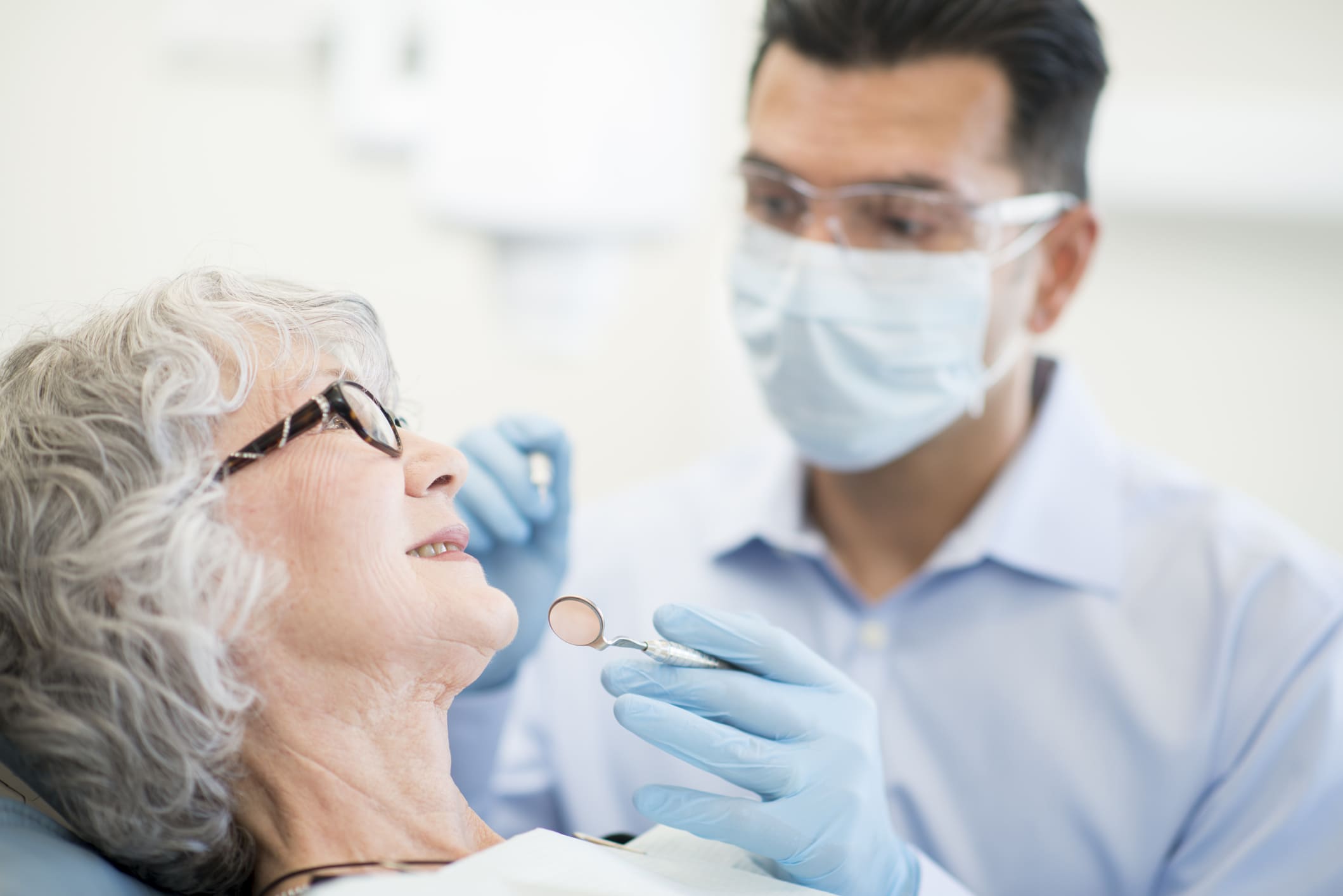Who are considered ‘the elderly’ in medical terms? There are two definitions. One is age-related.
- Young-old people are between 65-74 years old.
- Middle-old people are between 75-84 years old.
- Oldest-old people are over 85 years old.
The second is based on the elderly patient’s health, and whether they can source and attend dental care independently of other people, like family or carers.
The typical senior’s state of health can include a combination of arthritis, back and neck pain, diabetes, dementia, depression, cancers, cataracts, hearing loss, heart disease, hypertension, and obstructive pulmonary disease. Physical, sensory, and cognitive impairments may make home-based oral health care and communicating with patients challenging. Another challenge is the combination of prescription and over-the-counter medications seniors often use. As a result, medication errors, drug interactions or adverse drug reactions, and an increased sensitivity to local anaesthetics and analgesics.
Common Oral Health Problems in Elderly People
- Darkened Teeth – Apart from certain foods and beverages, darkened teeth are caused by changes to your tooth enamel. As you age, your tooth enamel gets thinner. So, your teeth become more transparent. The darker layer beneath shows through, making your teeth look yellow or brown.
- Tooth Decay – Despite good hygiene, seniors are susceptible to root and coronal cavities, as their teeth have been worn down so much from a lifetime of eating, dry mouth and increased consumption of certain medications.
- Gum Disease – Periodontal disease, leading to pain, swelling, and even tooth loss. is a very common problem for seniors. It begins with gingivitis, or gum inflammation. If not treated it can advance to periodontitis, tooth loss, gum recession, root decay, discomfort, and pain.
- Tooth Loss – If poor dental hygiene has been the norm, decay, gum disease, or injuries, may result in senior patients losing some, or all of their teeth. Dentures and implants, while helpful, need special care to prevent problems in the future.
- Inflamed Tissue Under Dentures – Wearing dentures could result in inflamed gum tissue. Great denture care will remove food particles and bacteria, stop irritation, bad breath, and infections.
- Dry Mouth a.k.a. xerostomia – When the mouth doesn’t produce enough saliva, either because of disease or medication, dry mouth is the result.
- Oral Cancer – The risk of oral cancer increases with age. Regular dental checkups are important for early detection.
6 Common dental treatments for seniors
- Routine Cleanings twice a year remove plaque and tartar buildup from your teeth. They can help keep your mouth healthy and prevent problems down the road.
- Deep Cleanings are necessary if you have gum disease or the beginnings of tartar buildup below your gum line.
- Debridement treatments help seniors whose buildup of plaque and tartar prevents a dentist from carrying out a procedure.
- Periodontal Cleaning follows a deep cleaning, and helps maintain gum health.
- Denture Care is aided by a yearly dental appointment to check proper fit, comfortability, and oral health.
- Oral Cancer Screenings should be a priority for seniors as serious health conditions, besides oral cancer, can be detected. Twice yearly appointments are important!
If you are a senior and are looking for the best oral care advice, find out more about our Dental Services or Call Today on 0508 TEAM DENTAL and talk to us about how we can become your trusted go-to smile professional.
FAQs:
Q1: What are some common oral health issues that affect elderly individuals?
A: Elderly individuals often experience darkened teeth, tooth decay (including root and coronal cavities), gum disease (periodontitis), tooth loss, inflamed tissue under dentures, dry mouth (xerostomia), and an increased risk of oral cancer.
Q2: How often should seniors visit the dentist?
A: Seniors should aim for routine dental cleanings and oral cancer screenings twice a year. Regular visits are crucial for maintaining oral health, preventing problems, and early detection of serious conditions like oral cancer.
